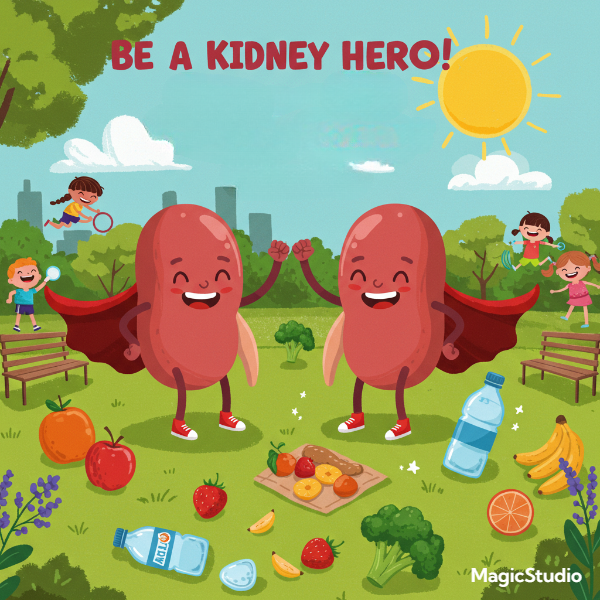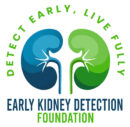Your kidneys play a crucial role in maintaining your overall health by filtering waste and balancing fluids in your body. However, kidney failure can develop silently, often without noticeable symptoms in the early stages. Recognizing the early warning signs of kidney failure can help you seek prompt medical attention and avoid severe complications.

These are the Early Signs of Kidney Failure you Should Not Ignore
1. Fatigue and Weakness
The most universal sign of failure of the kidney is an abnormally excessive feeling of tiredness or weakness. If toxins and other waste products start accumulating in your bloodstream because of poor function of the kidneys, you may feel utterly drained due to extreme fatigue, which is different from ordinary tiredness after a hard day’s work—this is a type of fatigue that doesn’t fade with rest.
Furthermore, kidney failure often results in anemia, which will also naturally fatigue you. If you feel that you are losing energy for day-to-day activities, it’s time to seek a healthcare provider.
2. Your Feet, Legs, or Ankle Swelling
Kidney failure This results in the inability of your body to flush out excess salt and water, leading to a build-up of excess fluid that may cause swelling in your lower limbs. Although swelling often takes place in the legs, ankles, and feet, you are likely to notice swelling in the lower limbs. Puffiness may not disappear as one elevates the legs or decreases their intake of salt, which may point to a possible failure of the kidneys. Fluid retention must be monitored, and a doctor must be consulted since untreated edema may cause more problems.
3. Changes in Urination Patterns
Your urination patterns will often reveal so much about kidney health. The times when you pass water frequently or infrequently will often indicate possible kidney failure. The condition can bring nocturia- the urge to go to the bathroom during the night or, in extreme cases, a reduced flow of urine.
Other people will even find it challenging to pass out water while still having frothy urine with traces of blood. These changes should not be ignored at all because these are direct indications of kidney diseases. Timely action can save the kidneys from further damage.
4. Shortness of Breath
The fluids will accumulate in the lungs, leading to shortness of breath, as fluid in the lungs may cause difficulties while breathing. Your kidneys cannot filter out extra water when their filtration ability declines, and it makes them fail to remove excess water. Kidney failure also causes anemia, decreasing oxygen supplied to the tissues and, therefore, breathlessness. If you are suffering from unexpected shortness of breath or great difficulty with breathing after minimal exertion, then you must seek medical evaluation.
5. Persistent Nausea and Vomiting
You might end up having built-up toxins inside your body as a result of the failure by the kidneys to remove the same from the bloodstream. You experience nausea, vomiting, and generally bad health. With these symptoms is usually loss of appetite and some unintended weight loss. If, for instance, you keep complaining of nausea and vomiting without obvious cause, chances are that something is wrong in your kidneys which needs urgent action.
5 Essential Prevention Tips for Kidney Health
Here are five proven prevention tips to keep your kidneys functioning optimally:
1. Stay Hydrated
Drink sufficient amount of water like 8 glasses so kidneys function healthily in terms of flushing out the waste and preventing toxin buildup. If you remain dehydrated, it can exhaust your kidneys, resulting in stones and infections. Thus, drink at least eight glasses of water everyday.
2. Eat a Balanced Diet
Healthy nutrition prevents kidney disease. Minimize salt intake, processed foods, and bad fats, as they tend to introduce problems of hypertension and diabetes-the major risk factors affecting the function of kidneys.Use a variety of fresh vegetables, fruits, whole grains, and lean proteins.
3. Manage Blood Pressure and Blood Sugar
The most common causes of kidney disease are high blood pressure and diabetes. Monitor and manage these conditions with medications, diet, and lifestyle changes to keep your kidneys healthy.
4. Exercise Regularly
Exercise supports kidney health by controlling weight, lowering blood pressure, and improving circulation. Aim for 30 minutes of moderate activity most days, whether it’s walking, swimming, or biking.
5. Avoid Smoking and Limit Alcohol
Smoking reduces blood flow to the kidneys, and excessive alcohol can dehydrate and damage kidney tissue. Quitting smoking and limiting alcohol helps protect your kidneys from further harm.
Conclusion
To conclude, early detection and prevention can be of great help in preventing damage to your kidneys and allowing you to obtain a healthy lifestyle in the long run. If you experience any kidney failure symptoms, don’t delay talking to your healthcare provider. Early intervention through chronic kidney disease diagnosis in San Francisco will definitely improve outcomes and avoid further complications.
So, go ahead and have your kidney scan at the Early Kidney Detection Foundation (EKDF). Here, we have a wide array of programs directed at sensitizing people about kidney disease, therefore giving them tools for prevention, detection, and education.
